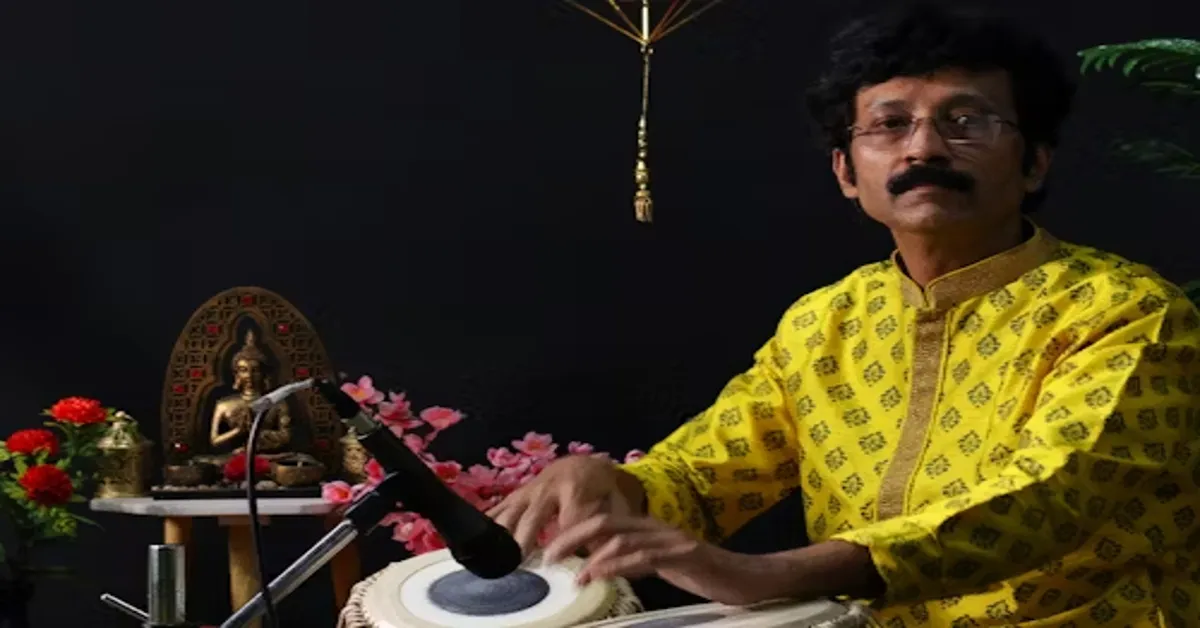Purandara Dasa stands as one of the most revered and influential figures in the history of Indian music, particularly Carnatic music, as well as in the Bhakti movement that swept through South India in the 15th and 16th centuries. He is celebrated not only as the “Sangeeta Pitamaha” or “Grandfather of Carnatic Music,” but also as a deeply spiritual figure whose compositions are timeless expressions of devotion, ethics, philosophy, and social reform. His life, rooted in a deep transformation from a wealthy merchant to a humble servant of God, continues to inspire millions even centuries after his time. To truly understand his significance, one must delve into his background, spiritual awakening, contributions to music, philosophical insights, and lasting cultural legacy.
Early Life and Background
Purandara Dasa was born in 1484 CE in a place called Kshemapura, which is believed to be near Tirthahalli in present-day Karnataka, though some accounts suggest Purandaraghatta as the birthplace. His birth name was Srinivasa Nayaka, and he was born into a prosperous Vaishya (merchant) family. His father, Varadappa Nayaka, was a wealthy jeweler and trader. From a young age, Srinivasa was exposed to the world of commerce, and he quickly absorbed the skills of business management and finance. His acumen in business was so sharp that he expanded the family trade significantly and became one of the richest men of his time.
Despite his wealth and success, Srinivasa Nayaka led a life devoid of spiritual purpose in his early years. He was known to be highly materialistic, reluctant to part with even a small amount of money, and lived in the trappings of luxury and status. His attitude toward the poor and needy was indifferent, and spiritual matters held little interest for him. However, destiny had something far more profound in store for this merchant.
The Turning Point: A Profound Spiritual Awakening
The transformation of Srinivasa Nayaka into Purandara Dasa is one of the most captivating spiritual stories in Indian cultural history. According to tradition, his life took a dramatic turn when a poor man came to his house seeking alms for his son’s thread ceremony (upanayana). True to his nature, Srinivasa turned the man away. The same man later approached his compassionate wife, Lakshmi Bai, who gave away her precious nose ring to help him. When Srinivasa found the nose ring inside a packet offered to him by a stranger, he was both puzzled and suspicious.
Upon confronting his wife, she, fearing his wrath, prepared to end her life, praying for divine intervention. Miraculously, a duplicate of the same nose ring appeared, revealing to both Srinivasa and his wife that a higher force was at play. Deeply shaken by this experience, Srinivasa Nayaka realized the futility of his materialistic pursuits. He renounced his vast wealth, distributed it among the poor, and became a wandering devotee of Lord Vishnu, adopting the name Purandara Dasa after the deity Purandara Vitthala, a form of Krishna.
Spiritual Devotion and Bhakti Movement Influence
Purandara Dasa became an ardent follower of the Dvaita philosophy of Madhvacharya and was a disciple of the great Madhva saint and philosopher Vyasaraja Tirtha, who gave him the title “Purandara Vittala Dasa.” His transformation was not merely personal but also philosophical. He embraced the Bhakti movement’s ideals, promoting the worship of God through devotion, singing, and moral living, rather than ritualism and caste hierarchies.
The Bhakti movement, which emphasized love for the divine as a path to liberation, resonated strongly in the teachings and compositions of Purandara Dasa. He used music as a medium to reach people of all backgrounds, transcending social and linguistic boundaries. He sang in Kannada and Sanskrit, writing in simple yet poetic language that conveyed deep spiritual and ethical messages.
His songs were devotional in nature, but they also carried powerful messages about human conduct, the nature of reality, and the importance of humility. He spoke against caste-based discrimination, hypocrisy among religious leaders, and blind rituals, instead emphasizing compassion, honesty, and sincere devotion to God.
Purandara Dasa’s Contribution to Carnatic Music
Purandara Dasa’s most significant and enduring contribution lies in the formalization and systematization of Carnatic music, the classical music tradition of South India. Prior to his time, music in southern India was more oral and fragmented, passed from teacher to student without a structured pedagogical approach. Purandara Dasa brought a disciplined methodology that has formed the backbone of Carnatic music education ever since.
The Pedagogical Framework
He developed a comprehensive system of music education that starts with foundational exercises and gradually leads the student through more complex forms. This includes:
- Sarali Varisai (Basic Patterns): These are simple exercises to train the voice and understand swaras (notes).
- Janta Varisai (Double Notes): Exercises involving paired notes to develop control and understanding of musical intervals.
- Alankaras (Patterns in Different Talas): These are scale-based exercises set to rhythmic cycles to build a sense of rhythm.
- Geethams and Swarajatis: Short compositions that integrate melody and rhythm, used for performance practice.
These structures are still used in Carnatic music training today, over 500 years later. In this way, Purandara Dasa not only contributed compositions but also laid the theoretical and practical foundation of the entire musical system.
Richness of His Compositions
Purandara Dasa is said to have composed over 475,000 devotional songs, although only about 1,000–1,500 survive today. His compositions span a wide emotional and devotional range, including praise of the Lord, philosophical insights, moral teachings, personal confessions, and social commentary. Some of his most famous kritis include:
- “Jagadoddharana Adisidale Yashode”
- “Krishna Nee Begane Baro”
- “Gajavadana Beduve”
- “Rama Nama Payasakke”
- “Venkatachala Nilayam”
These songs are noted for their lyrical simplicity, rhythmic beauty, and melodic richness. They were composed in a variety of ragas (melodic scales) and talas (rhythmic cycles), showing his deep understanding of musical theory and aesthetics.
Philosophy and Ethics in His Work
Beyond the technical brilliance of his music, what sets Purandara Dasa apart is the philosophical and ethical depth found in his compositions. He explored topics such as:
- Impermanence of Life: He often reminded listeners of the transient nature of worldly pleasures and the importance of spiritual awareness.
- Social Justice: He was critical of those who misused religion for personal gain and often condemned social inequality.
- Devotion Over Rituals: He emphasized that true devotion lies in the heart and not in external rituals.
- Surrender to God: He consistently stressed the need for complete surrender (śaraṇāgati) to the will of God, finding peace in divine grace.
His songs were filled with bhakti rasa—a deep emotional longing for and love of God. But they were also filled with vairagya (dispassion), satya (truth), and dharma (righteous conduct), making them a comprehensive guide to both inner and outer life.
Literary and Linguistic Contributions
Purandara Dasa primarily composed in Kannada, the regional language of Karnataka, making his works accessible to the common people. However, he also used Sanskrit phrases and devotional terminology drawn from Vedic texts. His simple yet elegant language allowed even illiterate people to memorize and sing his compositions, facilitating a spiritual revolution at the grassroots level.
His works contributed to the growth of Dasa Sahitya, a genre of devotional literature in Kannada. Other saints in this tradition, like Kanaka Dasa and Vijaya Dasa, followed in his footsteps, collectively leaving a vast and rich corpus of religious literature.
Influence on Later Composers and the Carnatic Tradition
Purandara Dasa’s impact was not limited to his own time. He directly influenced countless later composers in the Carnatic tradition. The Trinity of Carnatic Music—Tyagaraja, Muthuswami Dikshitar, and Syama Sastri—who lived in the 18th and early 19th centuries, all drew upon the foundation he laid. Tyagaraja, in particular, regarded Purandara Dasa as a spiritual predecessor, sharing his vision of devotion through music.
Many musicologists and historians recognize that without the structure, ethical vision, and devotional spirit that Purandara Dasa provided, Carnatic music as we know it today would not exist. His influence extended into temple music, Harikatha (musical storytelling), and even Indian classical dance, where his songs are often used in performances.
Legacy and Memorials
Purandara Dasa passed away in 1564 CE, but his legacy continues to thrive in various forms. Every year, a Purandara Aradhana festival is held in his honor, especially in Hampi and other parts of Karnataka, where musicians gather to sing his compositions and celebrate his life.
Institutions, music academies, and religious organizations throughout India and abroad commemorate his contributions with concerts, lectures, and cultural events. Statues and memorials have been built in his name, and his influence continues in music classrooms where young learners begin their journey with the very exercises he developed centuries ago.
Conclusion
Purandara Dasa was more than just a composer or a saint. He was a visionary who merged spirituality, music, and social reform into a single path of devotion. From the opulence of a wealthy merchant to the asceticism of a saint, his life represents the triumph of spirit over materialism. His contributions to Carnatic music are foundational and everlasting, while his philosophical insights continue to inspire seekers of truth and love for God. In a world increasingly dominated by noise and distraction, the simple yet profound bhajans of Purandara Dasa continue to call us back to inner peace, divine love, and ethical living. He remains not just a historical figure, but a living presence in the devotional and musical heart of India.
ALSO READ: Mydownloadtube: A Complete Guide to Features, Risks, and Alternatives
FAQs About Purandara Dasa
1. Why is Purandara Dasa called the Father of Carnatic Music?
Purandara Dasa earned the title because he systematized the teaching of Carnatic music, introduced pedagogical exercises like sarali varisai and alankaras, and composed thousands of devotional songs that laid the foundation for classical music practice in South India.
2. What philosophical school did Purandara Dasa follow?
He followed the Dvaita (dualism) philosophy of Madhvacharya, emphasizing the eternal distinction between the soul and God and the path of surrender through devotion to Lord Vishnu.
3. In what language did Purandara Dasa compose his songs?
Most of his compositions are in Kannada, enriched with Sanskrit devotional terminology, making his works accessible to both common people and scholars.
4. How many songs did Purandara Dasa compose?
He is believed to have composed over 475,000 songs, though only about 1,000–1,500 survive today. These songs cover themes of devotion, morality, and spirituality.
5. What are some popular compositions of Purandara Dasa?
Famous songs include “Krishna Nee Begane Baro,” “Jagadoddharana,” “Gajavadana Beduve,” and “Rama Nama Payasakke,” all of which are still sung in concerts and devotional gatherings.









